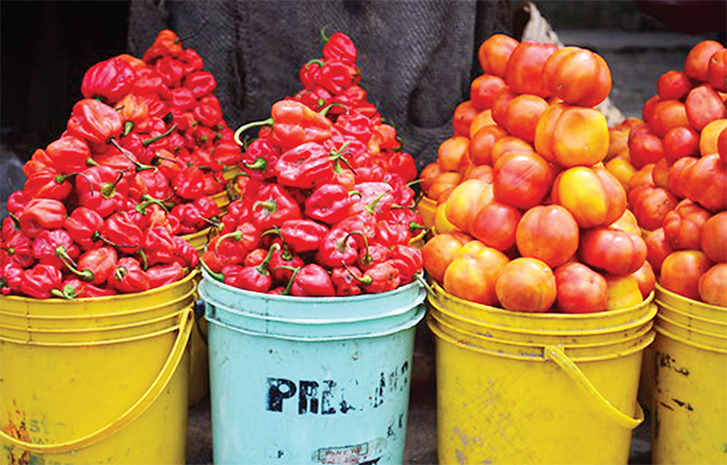In recent months, consumers in Nigeria have been grappling with the skyrocketing prices of essential food items, particularly tomatoes and pepper. These staples, integral to the Nigerian diet, have seen price increases that are not just steep but also persistent, leaving many households struggling to afford basic meals. Understanding the root causes of this inflation is crucial for devising effective solutions and mitigating the adverse impacts on the populace.
One of the most significant factors contributing to the surge in prices is climate change. Erratic weather patterns, including unpredictable rainfall and extended dry seasons, have severely disrupted agricultural cycles. For instance, excessive rainfall can lead to flooding, and destroying crops, while prolonged dry spells can cause droughts, reducing yield. Nigeria’s agricultural sector, heavily reliant on predictable weather, is particularly vulnerable to these changes.
The increasing insecurity in various parts of the country, especially in the northern regions where a significant portion of Nigeria’s tomatoes and pepper are cultivated, has exacerbated the situation. Armed conflicts and banditry have not only displaced farmers but also hindered their ability to tend to their crops. The threat of violence has made it perilous for farmers to work their fields, leading to reduced agricultural productivity and, consequently, higher prices.
According to Hussain Murijalah, a tomato seller in Kubwa, Abuja, the high cost of tomatoes and pepper is attributed to the insecurity and violence in the northern regions. Due to these challenges, people can no longer safely go to the farms, especially in Katsina and Sokoto. He also mentioned that their supply now comes from Jos and Zaria”
Hussain further explained that some of these products are being imported from Cameroon.
Another seller, Mallam Mohammed said another seller, mentioned that previously, a bag of tomatoes and peppers used to cost 30,000 naira. However, now it is being sold for over 110,000 to 120,000 naira in Abuja, and in Lagos, the price has soared to over 150,000 naira. The Price of Pepper goes for 10,000 and now it is sold for 50,000 to 60,000 naira. He expressed hope that as the rainy season intensifies in the coming months, the prices may eventually decrease.
Also, the high cost of transportation, fuel scarcity, and high transportation costs make it difficult to move produce from farms to markets efficiently. These logistical challenges mean that even when crops are successfully harvested, getting them to consumers is fraught with delays and added expenses, which are ultimately passed on to the buyers.
As prices soar, the ability of families to maintain their customary diets is compromised, leading to nutritional deficiencies and food insecurity. Moreover, the economic strain exacerbates poverty levels, as more of household incomes are diverted to food expenses, leaving less for other essential needs like education and healthcare.
The government ensuring the safety of farmers through improved security measures can help restore agricultural productivity. This might involve deploying security forces to protect farming communities and providing support to displaced farmers
Investing in better transportation infrastructure can reduce logistics costs and improve the efficiency of getting produce from farm to market. Improved roads, reliable power supply, and more efficient transportation networks are critical.
The high cost of tomatoes and pepper in Nigeria is a complex issue with multiple contributing factors. The government, private sector, and civil society have to ensure that these essential food items remain affordable for all Nigerians.
By tackling the root causes and implementing sustainable solutions, Nigeria can work towards a more stable and food-secure future.
